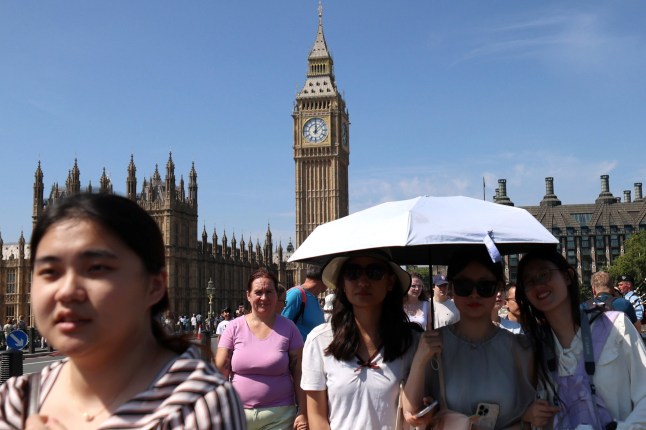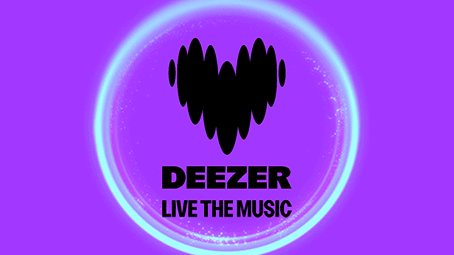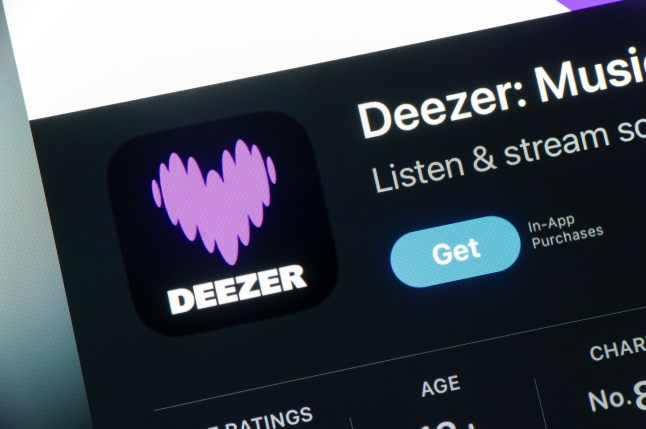
There were more than 16,000 excess deaths in Europe due to heatwaves driven by climate change this summer, researchers have concluded.
Looking at the impact of a warming world on excess mortality, they said of these deaths, 1,147 were in the UK.
The study released today looked at cities across the continent during the roasting hot summer, the warmest on record, which saw temperatures of 46C in Spain and Portugal.
Overall, the researchers estimated 2025 was 1.3°C hotter than it would have been without man-made climate change, but that the effect was more pronounced in the summer months: August was an estimated 2.3°C hotter, for example.
Jim Dale, a meteorologist who wrote ‘Surviving Extreme Weather: The Complete Climate Change Preparedness Manual’, told Metro: ‘Am I surprised that people die with extreme heat? Absolutely not: it’s written on the can.’
He said that 35°C was usually the threshold at which there started to be major health concerns, but it could be lower.
The study led by researchers at Imperial College London used modelling, historical mortality records and peer-reviewed methods to provide early estimates of fatalities this summer.
Authors warned that their analysis was only a snapshot of the death toll, as the areas they studied represented only around 30% of Europe’s population.
Extreme heat is known as a ‘silent killer’ because the majority of heat-related deaths also go unreported, while official government figures can take months to appear.
People often die from conditions such as heart, respiratory, or kidney problems that are made worse by high temperatures, even though heat is rarely recorded on death certificates.
2025 saw the UK’s hottest summer overall on record, so far. But Mr Dale told Metro that this year’s heatwaves were not a blip, but part of a trend seen around the world.
Pointing to the record-breaking heat in 2022, where the hottest single day was recorded in the UK with 40°3C, Mr Dale said: ‘There was a much longer fuse this time around (in 2025). We had the dry spring; it wasn’t particularly hot, but sunny as well. Then we got the summer which was periodically hot, particularly in the south.’

Hitting out at people who downplayed the impact of climate change, he said those walking around bare chested in the heat were not those most at risk: ‘It does affect the elderly, the infirm, and those with underlying conditions.’
The study found that people aged 65 and over made up 85% of the excess deaths, and those over 85 make up 41%.
Heat deaths reported across the continent included a 51-year-old street cleaner in Barcelona, Spain, and a 47-year-old construction worker in San Lazzaro di Savena, Italy.
Clair Barnes, researcher at the Centre for Environmental Policy at Imperial College London, said: ‘It may not sound like much, but our study shows that shifts in summer heat of just a few degrees can be the difference between life and death for thousands of people.
‘The longer it takes governments to shift away from fossil fuels and cut emissions, the deadlier summer heat will become – even with efforts to become more resilient to extreme temperatures.’
Researchers noted that other factors play a role in how deadly heat is, such as preparedness, population demographics and air pollution.
They called for governments to build resilience to extreme heat, such as ensuring cities have ‘green and blue spaces’, meaning grassy or watery areas like parks and pools, increasing air conditioning, and allowing for flexible work schedules during hot periods.
The analysis was conducted by 11 researchers from Imperial College London, the London School of Hygiene & Tropical Medicine, the University of Bern, the Royal Netherlands Meteorological Institute and the University of Copenhagen.
Get in touch with our news team by emailing us at webnews@metro.co.uk.
For more stories like this, check our news page.






